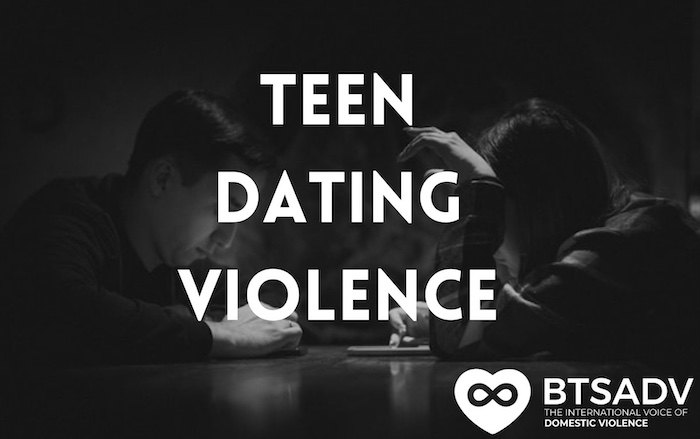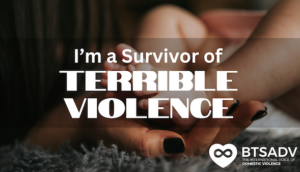By Misty Medders
Teen Dating Violence: Respecting Boundaries in the IRL and URL World
Dating violence is a significant issue affecting teenagers today, and it’s not confined to the traditional “real world” (IRL) settings anymore. With the rise of social media and digital communication, teen dating violence (TDV) can also occur online (URL).
As a result, it’s crucial to understand the signs of abuse in both the IRL and URL world and learn how to respect boundaries in relationships—whether they take place in person or over the internet.
What is Teen Dating Violence (TDV)?
Teen dating violence (TDV) refers to a pattern of abusive behaviors in a romantic relationship among teens, including physical, emotional, sexual, and digital abuse. TDV affects both boys and girls and can occur in any type of relationship, whether it’s in person or online.
The most alarming aspect of TDV is how subtle some forms of abuse can be, making it difficult for teens to recognize or feel empowered enough to speak out.
In the real world (IRL), teen dating violence can manifest in many ways, including physical violence, verbal insults, emotional manipulation, or even isolation from friends and family.
Meanwhile, in the online world (URL), it can involve cyberbullying, controlling behavior through social media, or demanding constant access to someone’s phone or online accounts.
How to Recognize Teen Dating Violence in the IRL and URL Worlds
Understanding the difference between healthy and unhealthy behaviors in relationships is key. Here are some common signs of teen dating violence in both settings:
In the Real World (IRL):
- Physical Abuse: Any form of hitting, pushing, slapping, or physically intimidating behaviors.
- Emotional and Verbal Abuse: Insults, belittling, or making a partner feel worthless.
- Isolation: Preventing a teen from spending time with friends, and family, or engaging in activities they enjoy.
- Controlling Behavior: Dictating who they can talk to or what they can wear, often as a form of manipulation.
In the Online World (URL):
- Cyberbullying: Name-calling, spreading rumors, or sending hurtful messages via text, social media, or other digital platforms.
- Excessive Monitoring: Demanding to know where a partner is, who they’re talking to, and checking their online messages or social media profiles without permission.
- Digital Manipulation: Using technology to intimidate, threaten, or manipulate someone, such as sending abusive texts or making a teen feel guilty for not responding immediately.
The Importance of Setting Boundaries
Both in the IRL and URL world, boundaries are essential in any healthy relationship. Boundaries help teens communicate their needs, protect their emotional well-being, and foster mutual respect. Unfortunately, in abusive relationships, these boundaries are often ignored, disrespected, or crossed.
Respecting your own boundaries—and recognizing when others don’t—is essential for emotional and physical safety. Here are some ways teens can establish and enforce boundaries in both real-life and online relationships:
In the Real World (IRL):
- Communicate Clearly: Express your needs and feelings honestly. Don’t be afraid to say “no” when something makes you uncomfortable.
- Trust Your Instincts: If a relationship feels off or someone is pressuring you to do something you don’t want to, trust your gut and take action.
- Ask for Support: Talk to trusted friends, family members, or professionals if you’re unsure whether your boundaries are being respected.
In the Online World (URL):
- Set Privacy Settings: Keep your social media profiles private and only share your information with trusted individuals.
- Don’t Respond to Abusive Messages: If someone is harassing or bullying you online, don’t engage. Block and report them.
- Be Mindful of What You Share: Avoid oversharing personal details that could be used against you.
How to Get Help: Resources for Teen Dating Violence
If you or someone you know is experiencing dating violence, it’s important to reach out for help. There are resources available to support teens who are dealing with abusive relationships, both in the real world and online.
- National Teen Dating Abuse Helpline: This service offers support for teens who are dealing with dating violence and abuse. Call 1-866-331-9474 or text “LOVEIS” to 22522 to get help.
- LoveisRespect.org: A leading online resource for teens, providing information, support, and tools to help navigate unhealthy relationships and recognize the signs of abuse.
- National Domestic Violence Hotline: 1-800-799-SAFE (7233) is a resource for survivors of abuse, offering confidential support and resources for those in need.
- BTSADV Supportline- 1-855-BTS-1777
Respect and Safety in All Relationships
Whether it’s face-to-face or online, respecting boundaries is fundamental to any healthy relationship. Understanding the signs of teen dating violence, setting clear boundaries, and seeking help when needed can make a difference in how young people navigate romantic relationships.
By teaching teens to recognize unhealthy behaviors in both the IRL and URL worlds, we can empower them to take control of their emotional and physical safety, ensuring they feel respected and valued in all their relationships.
Read more blogs at https://breakthesilencedv.org/btsadv-blog/
Helpful Resources for Teen Dating Violence:



